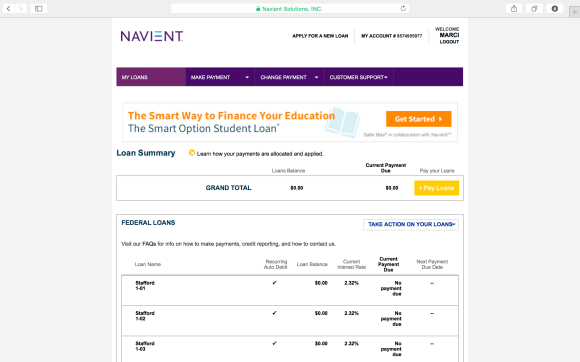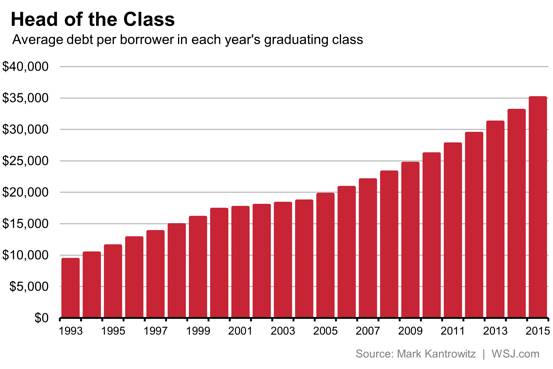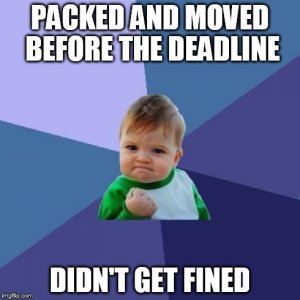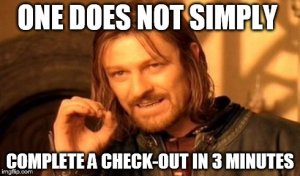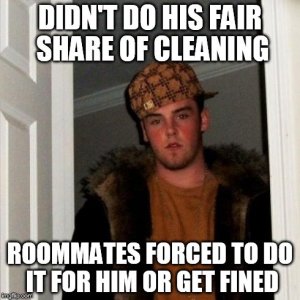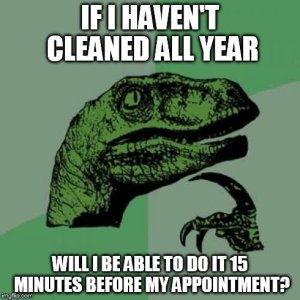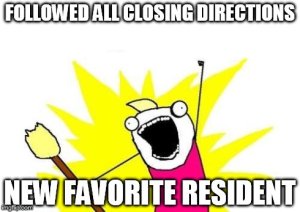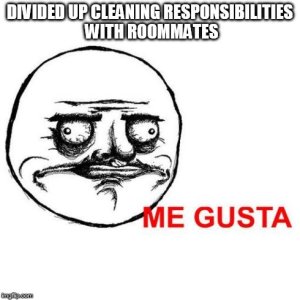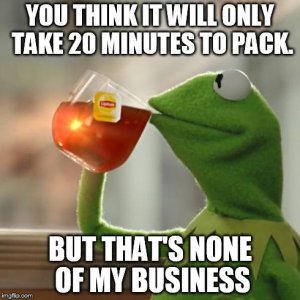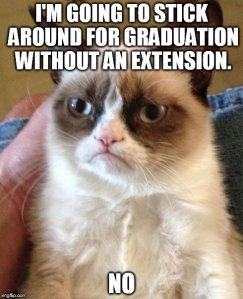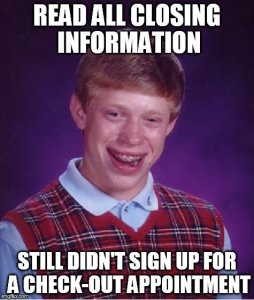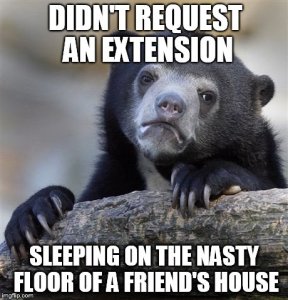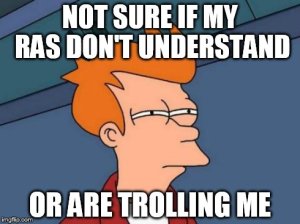Two weeks ago, I stood on the NASPA stage and called myself a racist. It was in the context of an SA Speaks session, which is similar to a TED Talk. Professionals are given 10-15 minutes to give a talk about a topic near and dear to them, and for me, growing up in a racist environment, being racist as a child and adolescent, but being transformed by my college experience was the story I needed to tell.
In an age of police brutality, structural and systemic oppression, and all the way to professional Facebook groups, racism is everywhere. In light of all of these continuing dynamics and especially in light of the magnificent #BlackSAPBlackout in the Student Affairs Professionals Facebook page at the end of last week, I wanted to share the script of my talk before the video becomes available online. In complete transparency, I know I diverted from the script a few times and don’t remember a ton of it (thanks adrenaline!) so the finished product will be slightly different, but here it is, as it was meant to be given.
I would also like to thank Heather Browning and Bulaong Ramiz for being my incredible editors and feedback providers. Their incredible work made my work so much better, so please think of them the next time you need a critical eye.
Hello everyone! My name is Marci Walton and I am not here to talk about assessment or retention or budgets. I’m not going to share my research or talk about a program I’ve implemented on campus. Instead, I want to talk to you about race. I want to talk to you about someone who grew up in a racist environment, internalized those messages, held hate in my heart, but was transformed by my collegiate experience, and stand before you as an aspiring racial ally and accomplice.
I want to talk about race because the time for passive head-nodding of white student affairs professionals is and has been over. I titled this session “A Recovering Racist” because I view racism as a socially constructed sickness. One that is insidious, can lay dormant for years and mutate into different manifestations and college campuses are the perfect Petri dish. The racist part of me will always be there so I must be vigilant and battle flare-ups from time to time. I also want to acknowledge the inherent privilege associated with being listened to during this session. I was quite literally given a stage and a microphone when so many of my students and colleagues of color are not given the same opportunity, so I have to use this moment to say something, to stir something inside of you, to help inspire less hand-wringing and more action. So here’s my story.
To know me is to know my hometown. I grew up in the village of Sycamore, Ohio. Census data from 2000 shows a population of 914, 99.67% identified as white. This meant my teachers were white, my friends were white, my church congregation was white, my pharmacist, doctor, dentist, hairdresser, and banker were all, you guessed it, white. This meant the only messages I got about race were from people who were white, plus movies, magazines, and TV. This means that when my Dad got a deep tan one summer and I asked him if he was now Black. This environment meant hearing the N word used as just another way to describe people in my community or to refer to the lower income part of town. This environment meant confederate flags were a dime a dozen and my high school mascot was and still remains a Mohawk Warrior. It meant I became a stereotypical white first-year student who freaked out when I was matched with a black roommate.
Move-in day was stressful. I was scared to death to meet Kia, my college roommate and it wasn’t just typical jitters. This was going to be the first time I EVER had a conversation with a person of color and now I was living with a phenomenal Black woman. I remember overhearing Kia’s younger sister whisper to her, “Kia, you have to live with a white girl? Good luck with that!” I immediately bristled. I thought to myself, “I’m not a white girl. I’m just me.” I had never been asked to think about my race before, but I was about to get an education I did nothing to deserve.
For some reason, Kia gave me grace that I did not deserve. She deserved to have a college roommate who was easy to live with and not someone who asked her if she was in a gang when she wrapped her hair and threw a scarf around it our first night as roommate. I was shocked when she said her high school didn’t have metal detectors. I snubbed my nose when she turned on BET. I told her collared greens looked like weeds. I was racist. 100%. And for reasons I still don’t understand, Kia gave me a chance. She invited me to come along to weekly meetings of Concerned Black Students, our campus organization dedicated to Black students and racial equity. I so distinctly remember the uneasy feeling in the pit of my stomach during the first meeting when I was the sole white face in the crowd. I whispered to Kia, “It’s so weird. I’m the only white person. Is it really okay for me to be here?” and she whispered back, “You’re fine. This is what it’s like in every single class I’m in. How does it feel?” This was a turning point. I decided to reserve judgement. To listen more than I spoke. And to learn everything possible to supplement a racial education that had just begun.
Kia invited me to hang out with her friends. There was a group of about 10 Black women who lived on our floor and they welcomed me with open arms and a healthy dose of skepticism. I continued to attend CBS meetings. I began taking classes in Africana Studies. I broadened what movies I watched and what music I listened to and what books I read. I walked out of classes to attend an annual CBS Walk-Out for racial awareness and equality on campus. As I was preparing for this presentation, I reached out to some of my college friends to compare my recollection with their experience. Erica recalled me asking lots of questions about Black girl’s hair and attending as many of her gospel choir concerts as I could. She said her favorite memory was seeing me in my CBS stole at graduation which showed her unity across skin color. Travette remembered my presence at CBS events and participating in and attending forums on race relations. She said my presence and participation were a testament of my effort to try and understand cultural differences and learn that although we have differences that does not make us unrelatable. Kia, my roommate, had perhaps the most poignant reflections. She said she expected to have issues with me due to my small town roots. She remembered me be unsure about attending CBS and later apologizing for my nervousness around having a Black roommate. Kia remembered me listening to her when she expressed opinions around race and asking questions to better understand, but never invalidating her experience. She said I was supportive during times of racial turmoil on campus. “I really wish more people would approach racial relations in the way that you did, by holding back their opinions, listening to others, and being supportive when needed. Overall, it was great having you as a roommate. You taught me a lot of things too…that people can change their views if they are really open and want to understand the other point of view.”
It’s clear I was getting what college should be, a truly transformative experience.
But then I had a healthy dose of reality set in. I was on fire for my Africana Studies courses and wasn’t for the classes of my major. So over Christmas Eve dinner of my sophomore year, I boldly announced to my parents I was switching my major, wanted to go to the peace corp, and then become a professor of African History. It did not go over well. They told me I could change my major all I wanted, but they wouldn’t pay for my education. As hot, angry tears rolled down my cheeks, my father’s words rang in my ears. “Who cares what a white person has to say about race?”
So I did what any logical 19-year-old would do and that was continue to take classes and just not tell my parents. I kept my original major and supplemented it with Literature of the Caribbean, Slave Narratives, African-American history, and more to feed this desire. I read Martin AND Malcolm. I stayed active in CBS, attempted to get my white friends to come to meetings and events, called out my sorority when they tried to have a “ghetto” themed party, with varying degrees of success. Some white friends were receptive, many were defensive and I often impacted relationships. I used my role as a Resident Advisor to do programming around racial justice and invited sometimes resistant white residents to attend CBS events. I did original research on the racial discrimination my friends faced, wrote a senior thesis on the sociological implications of the Divine Nine, and marched on Washington with my friends when an affirmative action case was being heard by the Supreme Court. My parents still don’t know about that one!
I don’t share these example to do what so often well-meaning white people do and that is collect “ally” cookies, expect a pat on the head for being a decent human being, or to prove I’m one of the “good” white people, but instead to illustrate the possibilities of engaging white students in reflections on race through conversations across cultures, co-curricular engagement, and academic curriculum.
It is this critical reflection, acknowledgement of my responsibility to use my racial privilege to work towards critical change and the amazing educators/friends that led me to student affairs. It was this undergraduate foundation that brings me to this stage. It is being pushed and challenged and called out and called in by amazing professors in my graduate program like Dr. Dafina-Lazarus Stewart and Dr. Ellen Broido. It is reckoning with my privileges and realizing I didn’t need to be an expert before I could think critically think about myself, my peers, or my students in new ways.
So what does this mean now? What does my story have to do with us in this room? Well, first I want to apologize. To my Asian, Black, Latinx, Indigenous, and multiracial colleagues, I am deeply sorry. Your white colleagues, myself included, have not done enough. We have been silent. We have mistaken the feeling of being uncomfortable with being unsafe. We have huddled in corners and looked to you as experts and asked you to educate us. We have re-centered conversations with our tears and have crowned ourselves allies when we have done nothing to deserve the title. We’ve been all about social justice during job interviews and then operated like business as usual when black and brown bodies have been brutalized, not just in Ferguson or Baltimore, but on our very own campuses. We have lost opportunities to educate white students about their privileges. We have looked to diversity offices to do “the work” of inclusion and equity when this is everyone’s work because students of color are everyone’s students, even if we don’t act like it. We have been so worried about doing the wrong thing that we don’t do anything at all. And it is unacceptable.
So what can white professionals do? We can stop christening ourselves allies without taking action. I know I try to be an ally, but you need to talk to my friends, colleagues, and students to see if my actions match up with my aspirations. We can stop trying to learn on the backs of our colleagues. By constantly positioning professionals of color as the educator of able white professionals, we place undue burden on them when we have all the resources we need right at our fingertips. Want to know more? Do the work. Google brings up 146 million results for the “white ally.” Don’t ask your colleagues of color to labor for you for free. By doing so, you are further perpetuating problematic systems of inequity. For example, I had two amazing women of color, Heather Browning and Bulaong Ramiz read over this speech and provide suggestions and I paid them for their time. I didn’t expect them to want to help me, simply because I’m showing some commitment to progress.
White professional can stop using intersectionality as a reason to opt-out of conversations around race, because yes, I am a woman and middle-class and temporarily able-bodied and many other target and agent identities, but none of them make me any less white. We can interrupt racist assumptions. We can sit down and be quiet when people of color are gifting us with their truth and we can stand up and shout when their voices are not being heard. We can ask students of color how they are and actually listen and respond with compassion. We can realize our colleagues of color are weary, not just from doing their jobs, but also from living in a world which consistently tell them they don’t matter.
We can think about how racism is woven within the structures and institutions on our home campuses. I realize this can be especially overwhelming. I get it. But you take down structures brick by brick, so what’s your brick going to be? Maybe you will look critically at how students are given housing assignments so the students of color aren’t placed in segregated housing due to economic resources. Maybe you will suggest an author who isn’t white for your first year common read book. Maybe you will ask why there are so many people of color as cafeteria and custodial workers, but few in top leadership positions. Maybe you will ask how financial aid practices impact retention rates of students of color. Maybe you will take a critical look at getting beyond tolerance during your student leader training. Maybe you will commit to diversifying your social media networks so you aren’t constantly seeing narratives similar to your own. Maybe you won’t so quickly dismiss white students who don’t “get it,” around issues of race because I didn’t get it until I was asked to think and reflect and struggle with myself. Maybe you will instead think about how to provide an experience like I had in college which wove race into conversations across cultures, co-curricular engagement and the academic curriculum. Maybe you’ll ask why the racial composition of your college doesn’t match the glossy pictures of your brochures. Maybe you will not just buy tickets to a Beyonce concert, but engage your students in conversations of the #BlackGirlMagic found in Formation. Maybe you will partner with your campus police departments to address relationships with communities of color. Maybe you will vote. And help your students become informed voters. Maybe you’ll listen. Maybe you’ll read. Maybe you’ll think. Maybe you’ll do something. Anything. If you’ve been waiting for a sign, this is it. Let’s collectively answer my father’s question, “Who is going to listen to a white person talk about race?”
Let’s get to work. We have plenty to do. Thank you.
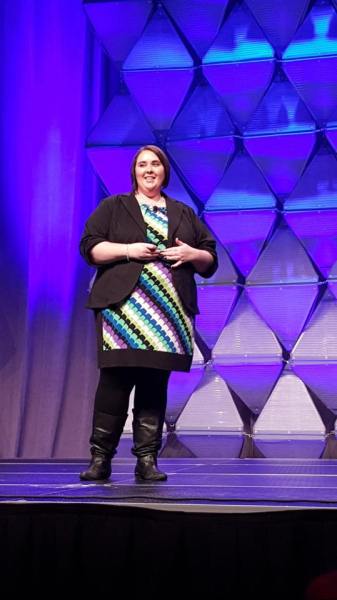
![]()
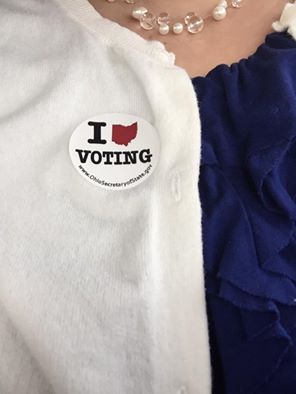


 Amma Marfo is a thoughtful, yet incurably silly, independent educational professional based in Boston, MA. As a writer, higher education speaker and popular culture enthusiast, she’s dedicated to the idea that our leisure pursuits can inform and enrich the work we do. She holds a Bachelor’s degree in Communication Studies from the University of Rhode Island, and a Master of Education from the University of South Florida.
Amma Marfo is a thoughtful, yet incurably silly, independent educational professional based in Boston, MA. As a writer, higher education speaker and popular culture enthusiast, she’s dedicated to the idea that our leisure pursuits can inform and enrich the work we do. She holds a Bachelor’s degree in Communication Studies from the University of Rhode Island, and a Master of Education from the University of South Florida.  Marci Walton is proud to serve as the Associate Director for Residence Life at Xavier University. Marci has been involved with recruitment and selection cycles of undergraduate, graduate, and professional staff for more than a decade and loves helping candidates find the right position for them. She tries to bring humor, honesty, and efficiency to search processes and in doing so, bring more compassion and transparency to the #SAsearch. Marci is interested in residence life, social justice, service, and the intersections of identity. She is passionately curious about social media, women’s leadership, and becoming friends with Adele. Marci can be found on Twitter
Marci Walton is proud to serve as the Associate Director for Residence Life at Xavier University. Marci has been involved with recruitment and selection cycles of undergraduate, graduate, and professional staff for more than a decade and loves helping candidates find the right position for them. She tries to bring humor, honesty, and efficiency to search processes and in doing so, bring more compassion and transparency to the #SAsearch. Marci is interested in residence life, social justice, service, and the intersections of identity. She is passionately curious about social media, women’s leadership, and becoming friends with Adele. Marci can be found on Twitter 